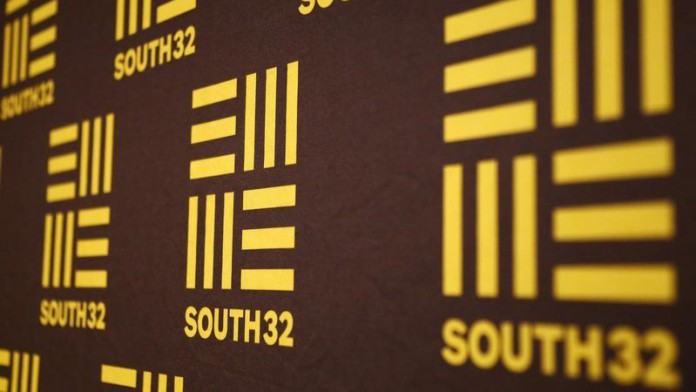
SOUTH32 flies under the radar in South Africa because the share isn’t index linked. But the company has been on a strong run this year thanks to the metallurgical coal price which buoyed interim revenue at a time when other mineral prices shrank.
Basic underlying share earnings were 12.2 US cents/share, down 44% year-on-year. So without metallurgical coal, South32’s performance would have been worse.
The company is also an important player in South Africa’s ongoing infrastructual tragi-comedy owing to the manganese it rails from the Northern Cape and the megawatts it consumes at its Hillside aluminium smelters in KwaZulu-Natal’s Richards Bay. For both, capacity constraints are a strategic headache.
South32 sold 1.6 million tons (Mt) of attributable manganese in the six months ended December of which a million tons were from the Northern Cape (the balance comes from Australia). Combined, manganese comprised 17% of underlying Ebitda in the half year, second to metallurgical coal (30%).
Aluminium comprised 11% of Ebitda owing to a sharp correction in the metal’s price last year. Hillside production totalled 337,000 tons during the period.
At more than a fifth of Ebita, the two minerals are important constituents of South32’s peformance. Their relevance to South Africa is even greater. Yet South32 management is concerned about the futures of both. Why? The answer lies at Government’s door.
For Hillside there’s a fear its coal-fired power supply will make its product increasingly unwanted, especially in the European market where it sells the most metal and where, currently, a $10 per ton premium is paid for green alumnium. South32 CEO Graham Kerr sees that premium widening to $40/t in a matter of years and higher yet, longer term.
That’s why his team, led by COO of the group’s African and Colombia assets, Noel Pillay, hatched talks with Eskom about buying 50% of the utility’s Koeberg production for which it will pay a premium. Kerr reasons that with a dedicated supply of nuclear power, Hillside can secure its future as well as some downstream industry, such as Hulamin, a semi-fabricator, in KwaZulu-Natal province.
Eskom turmoil
There are headwinds though. One analyst questions how green certification can be procured from power normally bundled to the national grid. Another issue is the lack of management continuity at Eskom. Its latest CEO of only three years, André de Ruyter, has left following his exposé of Government corruption and antipathy. Who knows whether the new CEO – whoever it will be be – can pick up the baton with South32. Equally uncertain is the attitude of Government whose electricity minister Kgosientsho Ramokgopa joins the slew of broth-stirrers with oversight of the utility.
“From our point of view this is absolutely worth a discussion given whoever’s at Eskom,” says Kerr. “Yes, we have been in talks with De Ruyter, but it’s also been a discussion with the rest of the Eskom team.
Failing to come up with a clean energy plan for Hillside is not quite existential yet, but it would seriously dent the competitiveness of the facility. “The likes of Ford, Tesla … they just won’t touch it. You could probably sell the aluminium elsewhere but it would be at a discount,” says Kerr.
Struggling with Transnet
About 1,200km west of Richards Bay is Hotazel, the epicentre of the world’s largest manganese reserves globally. South32’s Wessels mine there is capable of expansion and, in fact, needs it in order to lower mining costs.
South32 has said it is weighing about $50m in relatively small scale capital expansion and has been talking about lifting manganese output provided Transnet can unlock capacity – a point of discussion which tops the agenda of manganese export capital allocation contracts, due to enter its third iteration (MECA 3).
Talks have kicked off but instead of bargaining over the benefits of economies of scale South32 has been told by Transnet that spare capacity of up to two million tons will be granted to emerging miner firms in manganese.
Transnet has said there are no plans to take away capacity from existing participants of MECA 2 but manganese exporters are keen to grab additional capacity on the line, especially given Transnet’s efficiency problems currently, as it helps drive down costs.
“Every ton on road is significantly is more expensive than on rail,” says Pillay. A manganese price of $5/ton is needed to support large scale road freight – a level the price hasn’t reached since mid-2020. Expansion of the group’s facilities is largely stymied. “Negotiations have just started. We want to motivate it shouldn’t all apply to us,” says Pillay.
Asked if South32 saw in MECA 3 an opportunity to test the concept of operating on concession an expanded rail network that South32 would finance, the response is somewhat guarded. Transnet’s proposal is the private sector provide it with upfront capital. This is despite the utility’s operating shortfalls which forfeited R50bn in bulk mineral exports last year, according to Minerals Council chief economist, Henk Langenhoven. Said Kerr of Transnet: “Would you give them your money?”
This story was first published in the Financial Mail.











